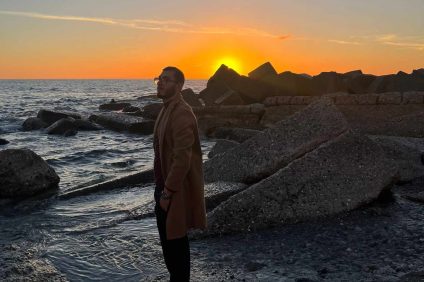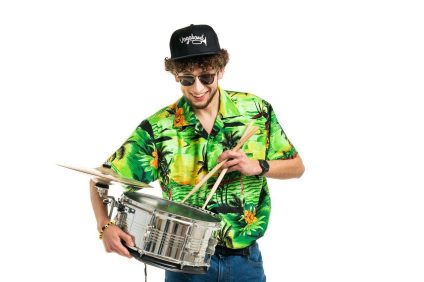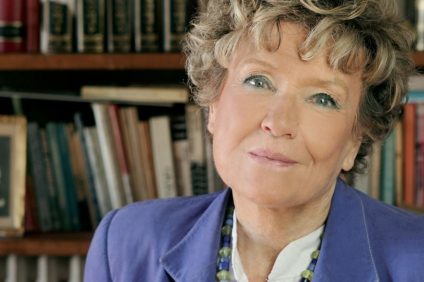Carlo, from Naples to Hollywood… is the dream of many. Can you tell us your story?
I was born and raised in Naples I am a Neapolitan true. At 15 I left my family because I wanted to go to the Nunziatella military school which is in Naples; I lived in that school for three years and then, at 18, I left Naples and entered the Modena academy. I was an officer of the Carabinieri for several years, I was around Italy and also abroad and then, at a certain point, I left the weapon and I dedicated myself to a job that many define diametrically opposite, which it is that of actor and screenwriter that I instead define perhaps complementary or completion. So I was in Rome a few years, I worked as an actor and I started to take my first steps as a screenwriter. Then, at a certain point I made a choice that my parents called “crazy”, out of the blue I came to America where I started my career. I have been here for some years now, I have taken American citizenship, therefore I am an Italian and American citizen.
Your first artistic expression was writing… how important is writing for you?
Writing is very important to me, almost as if it were a second skin because every day when I'm not busy acting or producing, I start writing because I have so many stories I want to tell, I'm writing so many screenplays. For me, writing is an existential need, my way to express myself as a person and as a professional goes through writing. I wrote from an early age, in middle school I wrote poetry, in high school I wrote my first novel which I never finished and currently I write a lot as a screenwriter.
Today you are a screenwriter, producer and actor. As an actor you also worked with the great director of Lucanian origins Francis Ford Coppola. How has this experience enriched you?
This experience has enriched me from several points of view. Distant Vision it was a movie that Francis Ford Coppola cataloged as a television movie. It was a very beautiful and very strong experience, it gave me more self-confidence, not that I didn't have any before, however, if there was some hesitation about my abilities, the possibility of being able to work with people of that level, a maximum level, has dispelled all doubts. Another aspect that changed me a lot was the fact of seeing a person like Francis Ford Coppola, therefore an already very famous director who, at the past 70 years, starts to do this new project, starts to experience a completely new thing that no one had ever done this before. A very complex thing too. He has made a combination of cinema, theater and television. We actors went to the set and rehearsed repeatedly, the cameramen filmed us with lots of cameras; at the same time Francis was in the control room doing the editing and rehearsing himself. We did this many times then, on the last day, there was the final take where everything was broadcast via satellite. Here I have seen a man of this stature, at 70, get back into the game, reinvent himself running the risk of making a mistake. This confirmed to me, once again, how important it is for all of us to try and do something new.
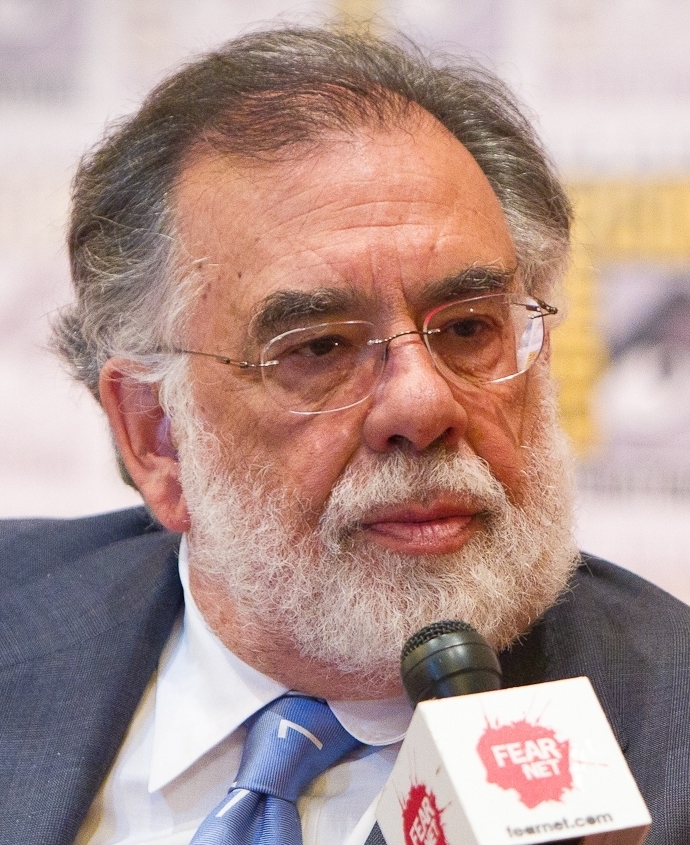
What were the roles, as an actor, that engaged you the most? How do you prepare to become the character you need to play?
I'm a "method actor”In the sense that I initially studied with a very good coach from Rome. I always try to find the truth in a character so I study how he moves, how he talks, what are his doubts, his desires, his dark side, his fears; I search in its past, I look for this truth and then I put it in my belly and I make it mine. I want to quote a phrase that Francis Ford Coppola himself told us and that is that, according to him, it is not an actor who becomes the character but it is the character who becomes the actor and it is completely opposite to what is usually thought. . As I said, I am a method actor so I always try to internalize everything.
I've been doing some characters lately that have kept me busy. In a play we did recently that is called My Big Gay Italian Wedding from which a film with Diego Abatantuono was made in Italy and that I made with a friend named Gianfranco Terrin, I play two roles. I did the part of a priest very funny but also very homosexual who obviously hid his homosexuality and who had to celebrate this marriage but could not do it because the catholic church is against it; the second character I did, in the same show, was the father of the groom who is completely the opposite, he is a bit of a conservative, a rough man. Another challenging character was certainly that of the medium footage I wrote and also a product called Near Death which also went on television in North America. This job took me a lot because I was an actor but also a producer; we had very little money and a lot of locations, it was a huge challenge but then it went well because we had very positive feedback.
Writing a screenplay is completely different from stepping into the shoes and personality of a character. Do the two roles help and support each other or are they totally independent?
No they are not independent, they are interconnected, in the most absolute way of the term because for me a good screenwriter must also have some rudiments of acting because a screenplay tells the story of characters. To write about a character you need to step into his shoes, you have to breathe the character. Many screenwriters also do acting schools and they do it because that's right. When I write, my partner who listens to me takes me for crazy, also because for now I write horror thrillers so stories in which crazy things happen.
In Italy you have worked in several TV series including Don Matteo 6. What are the differences between working in cinema and on TV?
There are many differences. Don Matteo 6 was my first job as an actor after leaving the Arma and my role was that of the carabiniere, it was a very nice thing. The difference between making films and making television is huge because when you make a TV series you have to go on set for a long time, even writers write a lot because TV series last a long time. One thing that has changed in recent times is that before television was done very quickly with stories that were less thought out, less studied than the stories of films that were artistically more substantial. Now, however, television has almost surpassed cinema; television is reaching artistic heights of narration and storytelling which are very very high; then now there is a lot of money on television, more than in cinema so the parts have been reversed, we will see what will happen in the next ten years ...
What are you engaged in now? What are you working on?
Now I'm working on a film that I wrote with my partner. It is quite an experimental thing that only develops in a location which is an underground chamber; we see only one actress and then there are other actors that we hear through the phone therefore, a very contained story that gives the feeling of being an action story, an action thriller. Now we are producing and we have involved in the project some famous actors, like Ed Asner who is almost a legend, who will play the part of the president of the United States; it is not a part that will be seen by the camera but a part that we will hear because our protagonist will call him on the phone very often. Then we involved another famous, very good actress named Vivica Fox and now we are in negotiation with our protagonist who I cannot name.
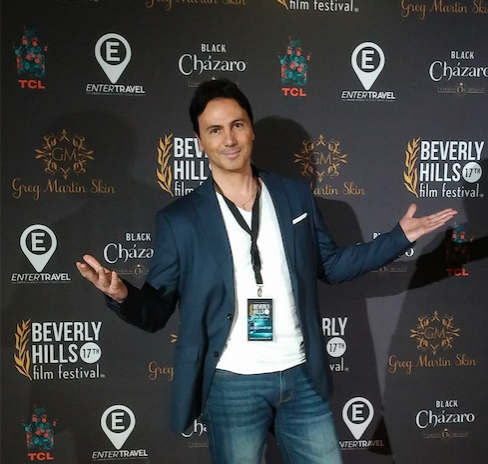
In Italy you were Captain of the Carabinieri, you were therefore part of the Meritorious, you had an important job, of responsibility, a job completely different from what you do today. As we speak, many young people who listen to us will be asking themselves: how did you understand that you wanted to use your life to do something else? How did you make the decision to change your life?
I would like to give a little advice to young people. Never be afraid to make difficult decisions, even those that seem impossible to you if these decisions coincide perfectly with your aspirations. Do not be afraid because often the brain makes us put stakes that do not exist. When I chose to leave the weapon, mine was not a decision I have made over the years. It was a decision I made pretty quickly when I realized my aspirations didn't match what I was doing. Leaving the weapon was a leap in the dark. The first years in America I practically lived off my savings, I had to face many difficulties, I had moments of discouragement but I never gave up because I was aware that I was doing something that I really liked; not that I didn't like being a carabiniere but in life you change, you find other horizons and I knew that I was doing something that really made me happy.
You are an Italian living abroad and you have achieved important goals to be proud of. How much Italianness do you bring with you to your work and everyday life?
In everyday life, in work, in meetings I bring the Italian spirit that is in my DNA. I arrived in America when I was already an adult, I did not know the language perfectly and I wanted to work in a sector where speaking and writing the language perfectly was fundamental. For me the language was a big handicap but the nice thing is that to fill this limit, practically from the beginning I tried to Americanize myself so I drank American coffee I always tried to hang out with Americans then, after a few years I realized that there is no it is the possibility of denying one's own DNA and therefore I started to be a little more instinctive. Now I find myself as if I were on a bridge that unites Italy and America. Although I have lived in America for many years, my Italian spirit is evident.
To close, a curiosity. Do you drink coffee? Espresso, Moka or Americano?
When I arrived in America I started drinking Americano coffee which is a very long coffee. Today I returned to my Italian style, I converted to Moka and strictly buy Kimbo coffee.
Thanks Carlo for this interview

